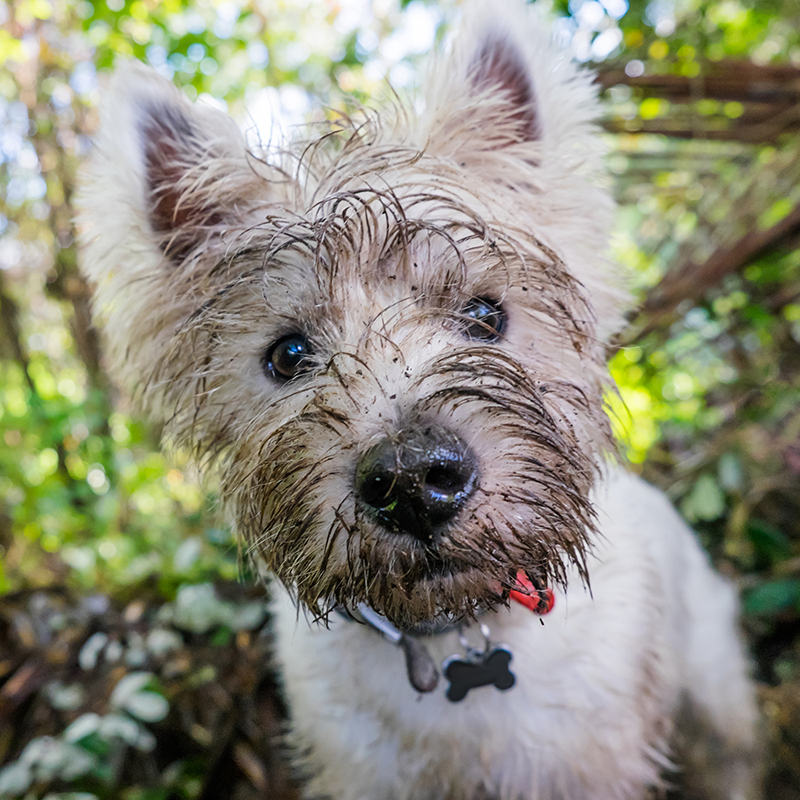Your Cart is Empty
Tips for Adopting a Rescue Dog
February 04, 2022 3 min read

We share our home with four lucky animals that get great care and provide us with fantastic companionship. None of them are of pedigree, in fact, they are all rescue pets of some sort. Two from recognised rescue centres, one from a relative that was moving and one who was actually passed around a local village as payment for labouring work!
As we all know, owning a dog is a big responsibility and some rescue dogs come with their own set of challenges which means we need to be careful to consider their suitability.
How To Choose The Right Dog
Be realistic about your circumstances and maybe start by writing a list of pros and cons about having a dog within your family and home environment.
Is my home big enough for a large breed? Do I have a garden? How much time have I got walk a dog? What happens on holidays, do we take the dog? Big dogs eat more, therefore they cost more to fuel. Etc etc.
Research breed traits as well, your dog has to suit your personality and your lifestyle. Speaking from experience, a working cocker spaniel requires loads of exercise!
Finding a dog using one of the many rehoming centres is a great way of making sure you have as many boxes ticked as possible. Dog rehoming centres will put you through a registration process that should include a home visit to confirm your property and surroundings are suitable for the type of dog you have in mind.
They will also have detailed recent (and sometimes longer) veterinary history too.
Trust the advice and judgement of the rehoming staff when it comes to choosing the ideal dog.
Rescue Dog Behaviour
Let’s be honest, many rescue dogs come with a few behaviour ‘issues’ and hopefully you’ll be aware of these before your adoption is complete.
Behaviour problems can be addressed with consistent training and patience over time. Aggression towards other dogs and people, for example, are key things to watch out for, but they can be successfully worked with the help of a behaviourist.
Rescue dogs always have a back story and many have not been socialised with other dogs and may have also had bad treatment from humans. It is not uncommon to see rescue dogs that are wary of men for example.
Getting Ready To Bring Your Dog Home
Make sure you have done all the preparation in advance of bringing your new pooch home.
The garden needs to be safe and secure, check for any plants that may be poisonous to dogs etc.
Make sure your dog has its own space with a dog bed or crate that is quiet and away from the most active areas of the house.
You’ll need food and water bowls, toys and a collar/lead or harness as required. Any plenty of poop bags!
Make introductions to the rest of the family in a calm, controlled way. Keep your rescue dog on a lead at first, if you need to. First introductions should be done on neutral territory, maybe in the garden.
Get the rules and routines right first, make it a positive relationship and bonding will naturally follow. Try and strike the right balance between setting boundaries and developing a bond.
It’s important to be consistent for any dog, but especially so for a rescue dog that may have experienced lots of inconsistencies in its care. Progress might be slow and there will be some set backs along the way.
Your dog should come with a supply of its current food, if not you need to know what it is and maybe buy some.
Moving home for your new pooch is a very stressful time so keeping their current food while they become comfortable in their new environment is a wise move.
Once they are happy and settled you can look to changing their diet and obviously, we think the best move is to try our amazing food! With any food change the transition should be gradual and adjust accordingly if your dog needs longer to get used to it.
Let’s go get a new dog!
For 15% OFF your first order* use voucher code: WDINTRO15
(*sample pack not included)
Leave a comment
Comments will be approved before showing up.
Subscribe
Sign up to get the latest on sales, new releases and more …

